Unmasking the political truth about India
Australian citizenship was a golden ticket — until this month. Look how low populist premiers have dragged us.
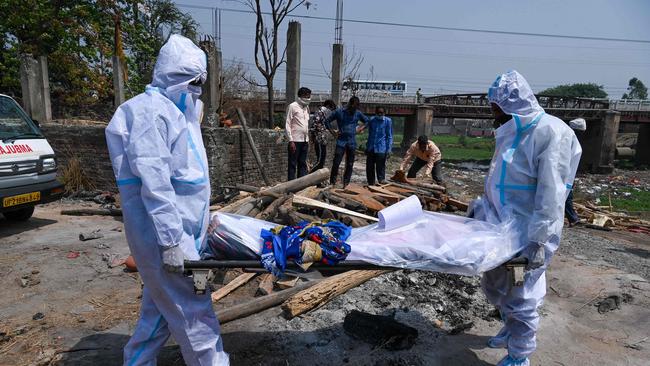
For Australians in India, citizenship suddenly has become ephemeral, a right that can disappear on a whim, a ripcord that might snap.
Why India? And why now?
The justifications based on infection risks do not stack up on the facts. Some critics blame racism, but that falls over on the ethnic diversity of people caught out by this ruling, including some of our most famous cricketers.
More likely, our politicians have overreacted to the trauma of the pandemic running amok in a developing nation. Television pictures of a third world health system overrun, people suffering in abject poverty, and funerals involving the practice (alien to most of us) of public cremations have created the impression for many that this is different and worse than anything the world has seen previously.
India is in a dire situation and it could get worse. But, so far, it is a tragedy of similar proportions to what has befallen the US, Britain, Spain, Brazil and others.
To comprehend our response, we need to examine domestic politics. For a year it has been clear that most of the states have implemented a pandemic response that is far more authoritarian, risk-averse and unrealistic than the approach outlined by Scott Morrison at the start.
We were aiming to “flatten the curve”, but now all states except NSW demand a flat line of virus elimination. The India travel ban shows that rather than lead the states to a more practical position, Canberra has been dragged down to their populist level.
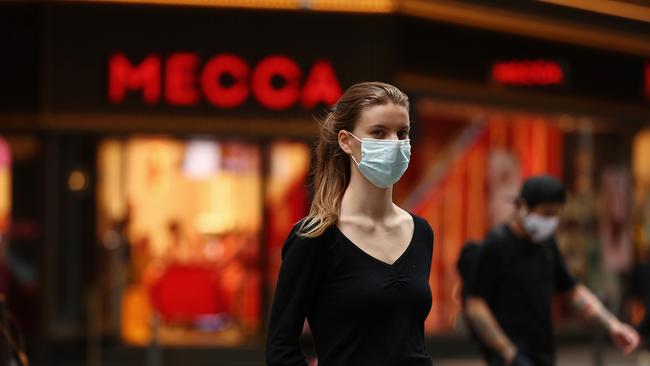
Only NSW’s Gladys Berejiklian remains true to the practical response of living with the virus. Yet even she has leapt to new restrictions this weekend in response to just two cases; admittedly, the measures are a light touch, but they seem to be more about being seen to do something rather than public health imperatives.
The equation is clear for our politicians; spoiled by the nation’s success, they see every infection as a political blow. They fear, above all else, an outbreak being traced to their inaction — hence millions locked down in Melbourne, Adelaide, Perth and Brisbane, sometimes over a single case.
We have a de facto national elimination strategy. It is openly identified only by Mark McGowan in Western Australia (at least he is transparent), but his lowest common denominator has skewed the national response.
The premiers who have been sloppiest with hotel quarantine — McGowan, Daniel Andrews and Annastacia Palaszczuk — have been quick to cover their failings by attempting to shift the responsibility to Canberra. Parochial and paranoid media have amplified this line, along with the federal opposition. And now, suddenly, the onus is on the Prime Minister to ensure there are no infection leaks from quarantine.
We now have the ridiculous aim of trying to prevent potentially infected people from going into a hotel quarantine system that has been specifically designed to catch and isolate infected travellers. It is politics, pure and simple, and the people paying a price are those Australian citizens who happen to be in India.
To comprehend how poorly we are treating these citizens we need only look at how we have treated other citizens. At the start of the pandemic we wisely banned arrivals from China (then, for a while, from Iran, South Korea and Italy).
This was necessary because hotel quarantine was not established. Still, the government chartered flights to China, even directly to Wuhan, to bring Australians back through quarantine on Christmas Island.
This was decried by the usual suspects as a racist response, but of course it was the opposite — prudent and compassionate; what Australian citizens might expect.
Since then, hotel quarantine has continued to take in returning citizens from around the world (more than 220,000) with most handled by NSW because Victoria closed its quarantine for many months due to its own incompetence, and other states have kept their numbers low.
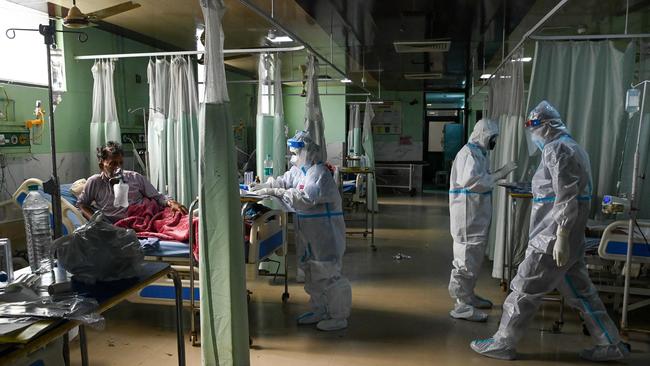
Over this period fewer than 1 per cent of returning travellers have tested positive and only one in every 106 of positive cases in quarantine have passed infections to others — in other words, the quarantine system has been more than 99 per cent effective. The success of the hotel quarantine system is the main reason we have kept our nation almost COVID free. We should be celebrating and consolidating it, rather than criticising and reworking it.
Just four months ago, at the height of the northern winter, daily infection rates in Britain topped 1000 per million people, and in the US they spiked at more than 700 per million. In India now, despite its trauma, the infection rate is yet to hit 400 per million. Even allowing for under-reporting, the infection rate on the subcontinent clearly lags what we saw in North America and Europe over Christmas.
This was reflected in the infections picked up in NSW hotel quarantine. In the four weeks to Boxing Day, 64 returnees from the US tested positive (41 per cent of all quarantine cases) and 17 from the UK were infected (11 per cent). The cases for the period to January 16 were 64 again from the US (37 per cent) and 20 from the UK (11 per cent) — so these countries accounted for about 50 per cent of hotel quarantine cases.
Over the past two months, with India suffering badly, the country-of-origin mix has changed with India switching places with the US and Britain. In the four weeks to the start of May, 89 infections came from India, or 50 per cent of all quarantine infections, with the US dropping off to 15 cases, or just 8 per cent.
The impact of the vaccine rollout in developed nations and the dire situation in South Asia are reflected in our hotel quarantine system. But why were we willing to accept high numbers of infected returnees from the US and UK for months but we jumped to a ban for people from India? These are all Australian citizens or permanent residents, are they not?
Eminent citizenship specialist Professor Kim Rubenstein has summarised the intent of the Migration Act for parliamentary inquiries as giving citizens “the right of free entry in and out of the country”. The universal declaration of human rights (Article 13) says: “Everyone has the right to leave any country, including his own, and to return to his country.”
The Attorney-General’s Department website says: “The right to freedom of movement includes the right to move freely within a country for those who are lawfully within the country, the right to leave any country and the right to enter a country of which you are a citizen. The right may be restricted in certain circumstances.”
Yes, it may. And the questions are: What restrictions? And which circumstances?
The same website notes: “The UN Human Rights Committee has stated that in no case may a person be arbitrarily deprived of the right to enter his or her own country, and that there are few, if any, circumstances in which deprivation of the right to enter a person’s own country could be considered reasonable. This component of the right is generally restricted to citizens.”
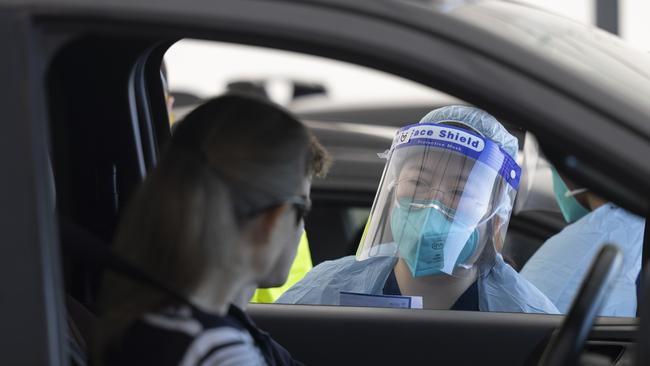
We are in the subjective area of assessing risks and proportionate responses. Imposing mandatory hotel quarantine on returning citizens, and demanding they pay for it, would seem to be a tough but proportionate response to the pandemic risk — an appropriate balance between rights and wider responsibilities.
Denying citizens the right to return to their country, in my view, would not. Especially when, as demonstrated above, citizens returning from other countries posing a similar level of risk have not been blocked.
It brings me no joy to be on the same side of any argument with some of our more prominent green left activists. My only comfort is that I called out this India ban earlier — warning early last week, before it happened, that it would be wrong — and have been consistent on these issues.
Many of the activists now energised to attack a federal Coalition government over denying citizens’ rights have been silent or complicit over the past year as state governments have overreached with lockdowns, curfews and hard borders that have denied freedom of movement and imposed social trauma beyond what was necessary or appropriate.
Last year, the Australian Human Rights Commission issued statements about COVID and gender, Covid and racism, defending mandatory mask rules, and falling short of even opposing the cruel lockdown of housing commission towers in Melbourne. Yet now it attacks the Morrison government’s India ban as raising “serious human rights concerns”.
It is right. But where was the commission on other human rights concerns such as hard borders preventing women in northern NSW from going to the nearest hospital; police arresting pregnant women in their Victorian homes for Facebook dissent; superfluous curfews stifling communities in Melbourne; and families kept apart by arbitrary border blockades?
Australian citizens in India needed to have their rights respected by the federal government — and with the ban being lifted on May 15 (“as planned”) and repatriation flights beginning immediately, it seems this reality now is understood. Within our borders, too, citizens need their rights respected by state governments extending their onerous emergency powers.


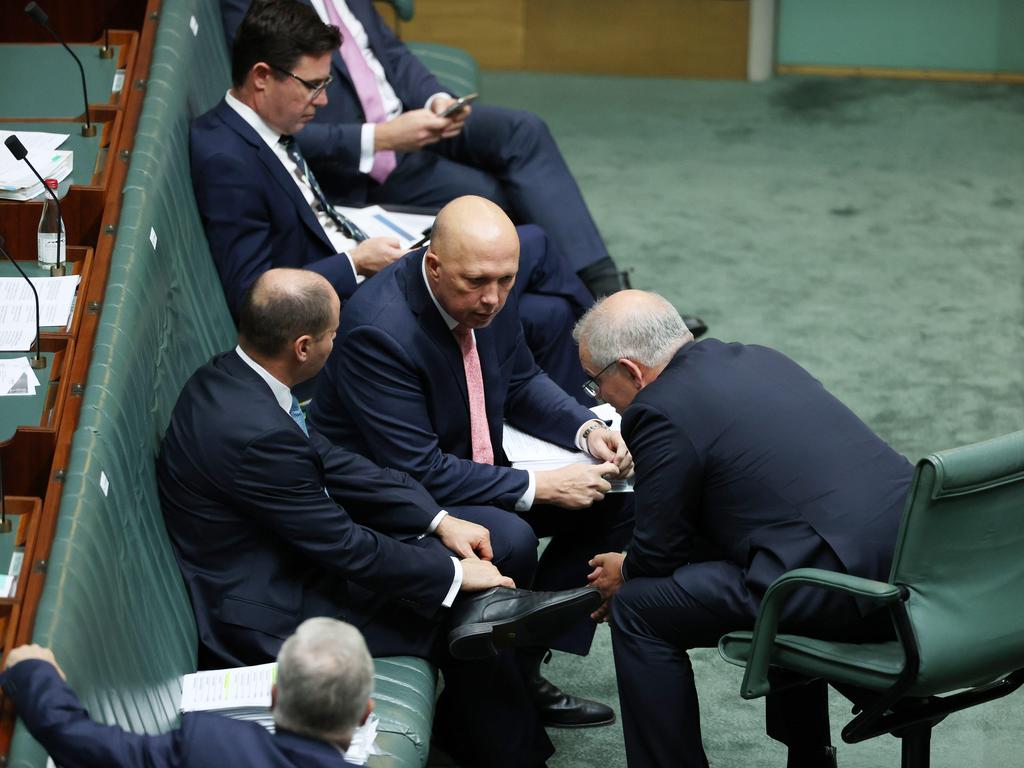
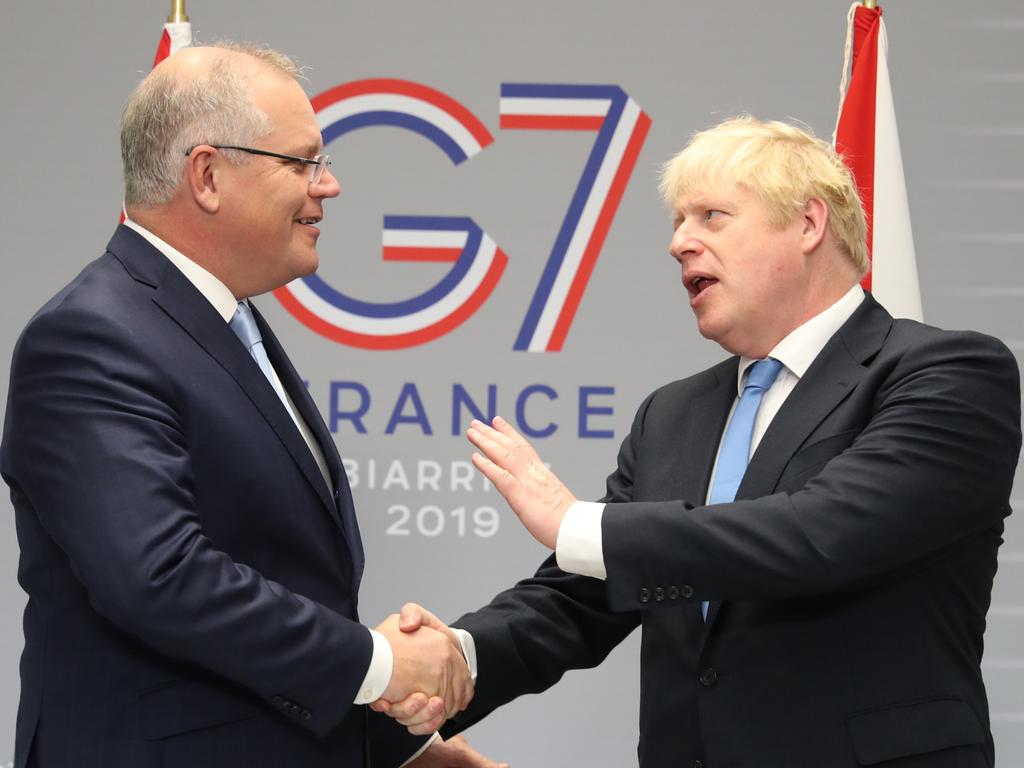


It is the golden ticket — or it was. Australian citizenship, until this month, carried the privilege of living in a land of inalienable rights and, if you left, providing a passport to return home to a land of freedom, generosity and prosperity matched by few others.